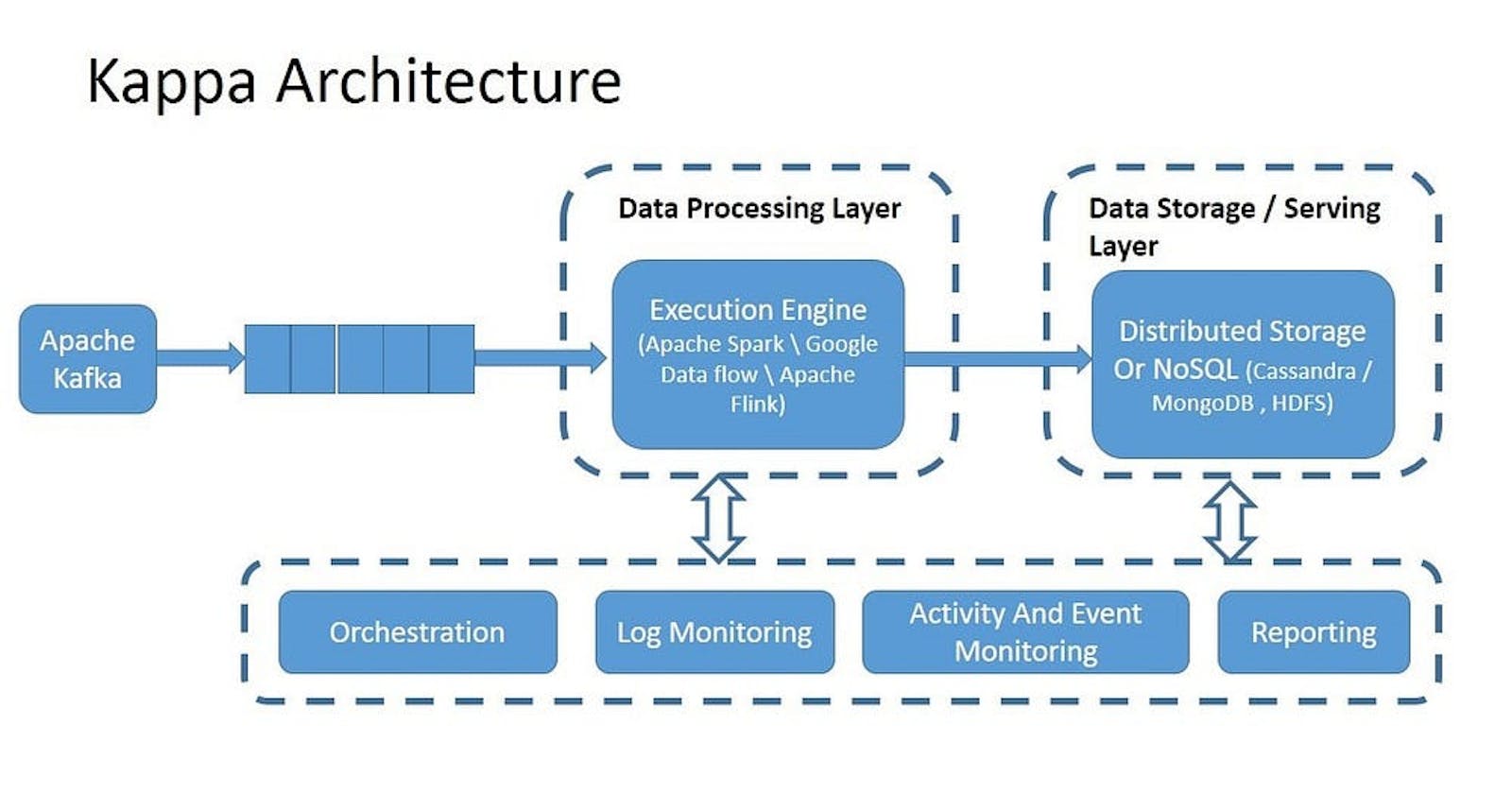Understanding Kappa Architecture and Kafka: Empowering Real-Time Data Processing
Table of contents
No headings in the article.
In today’s fast-paced digital landscape, the ability to process and analyze data in real-time is crucial for businesses to gain insights, make informed decisions, and stay competitive. This is where innovative architectural concepts like Kappa Architecture and powerful streaming platforms like Apache Kafka come into play, revolutionizing the way organizations handle data processing and analytics.
What is Kappa Architecture?
Kappa Architecture, introduced by Jay Kreps, co-founder of Confluent, reimagines traditional batch processing architectures by focusing solely on real-time data processing. Unlike its predecessor, Lambda Architecture, which involves separate paths for batch and real-time processing, Kappa Architecture simplifies the architecture by processing all data in real-time.
At the heart of Kappa Architecture lies the concept of an immutable data log, where all data, whether historical or real-time, is ingested and stored in a centralized log. This log serves as the single source of truth, enabling continuous processing and analysis of data streams.
The Role of Apache Kafka
Apache Kafka, an open-source distributed streaming platform, is a fundamental component of Kappa Architecture. Kafka provides a scalable and fault-tolerant infrastructure for ingesting, storing, and processing real-time data streams.
Kafka’s architecture is built around topics, partitions, producers, and consumers. Producers publish data records to Kafka topics, which are then partitioned and replicated across a cluster of Kafka brokers. Consumers subscribe to these topics and process data records in real-time.
Key Features and Benefits of Kappa Architecture with Kafka:
Scalability: Kafka’s distributed nature allows it to scale horizontally by adding more brokers to the cluster, handling large volumes of data streams without downtime or performance degradation.
Fault Tolerance: Kafka ensures data durability and fault tolerance by replicating data partitions across multiple brokers. In the event of a broker failure, Kafka automatically fails over to replicas, ensuring uninterrupted data processing.
Low Latency: Kappa Architecture, combined with Kafka’s efficient data processing capabilities, enables low-latency processing of data streams, empowering organizations to derive insights and take action in real-time.
Simplicity: Kappa Architecture simplifies the data processing pipeline by eliminating the need for separate batch and real-time processing systems. This results in a more streamlined and maintainable architecture.
Flexibility: Kafka’s support for various data sources and sinks, coupled with its robust ecosystem of connectors and tools, offers flexibility in integrating with existing data systems and applications.
Real-World Applications:
Kappa Architecture with Kafka finds applications across various industries and use cases:
Real-time Analytics: Organizations leverage Kappa Architecture to perform real-time analytics on streaming data, enabling timely insights and decision-making.
Fraud Detection: Financial institutions use Kafka to detect fraudulent transactions in real-time, preventing financial losses and ensuring security.
IoT Data Processing: IoT devices generate massive volumes of data that require real-time processing and analysis. Kappa Architecture with Kafka enables efficient handling of IoT data streams for monitoring, predictive maintenance, and more.
Log and Event Streaming: Kafka serves as a central hub for log and event streaming, facilitating log aggregation, monitoring, and analysis across distributed systems.
Conclusion:
Kappa Architecture with Apache Kafka represents a paradigm shift in how organizations approach real-time data processing and analytics. By embracing the simplicity, scalability, and flexibility of Kappa Architecture, coupled with the powerful capabilities of Kafka, businesses can unlock the full potential of their data, gaining actionable insights and driving innovation in today’s data-driven world. With its wide range of applications and proven benefits, Kappa Architecture with Kafka continues to shape the future of real-time data processing and analytics.
#KappaArchitecture #ApacheKafka #RealTimeProcessing #StreamingAnalytics #DataInfrastructure #BigData #IoT #FraudDetection #DataStreaming
